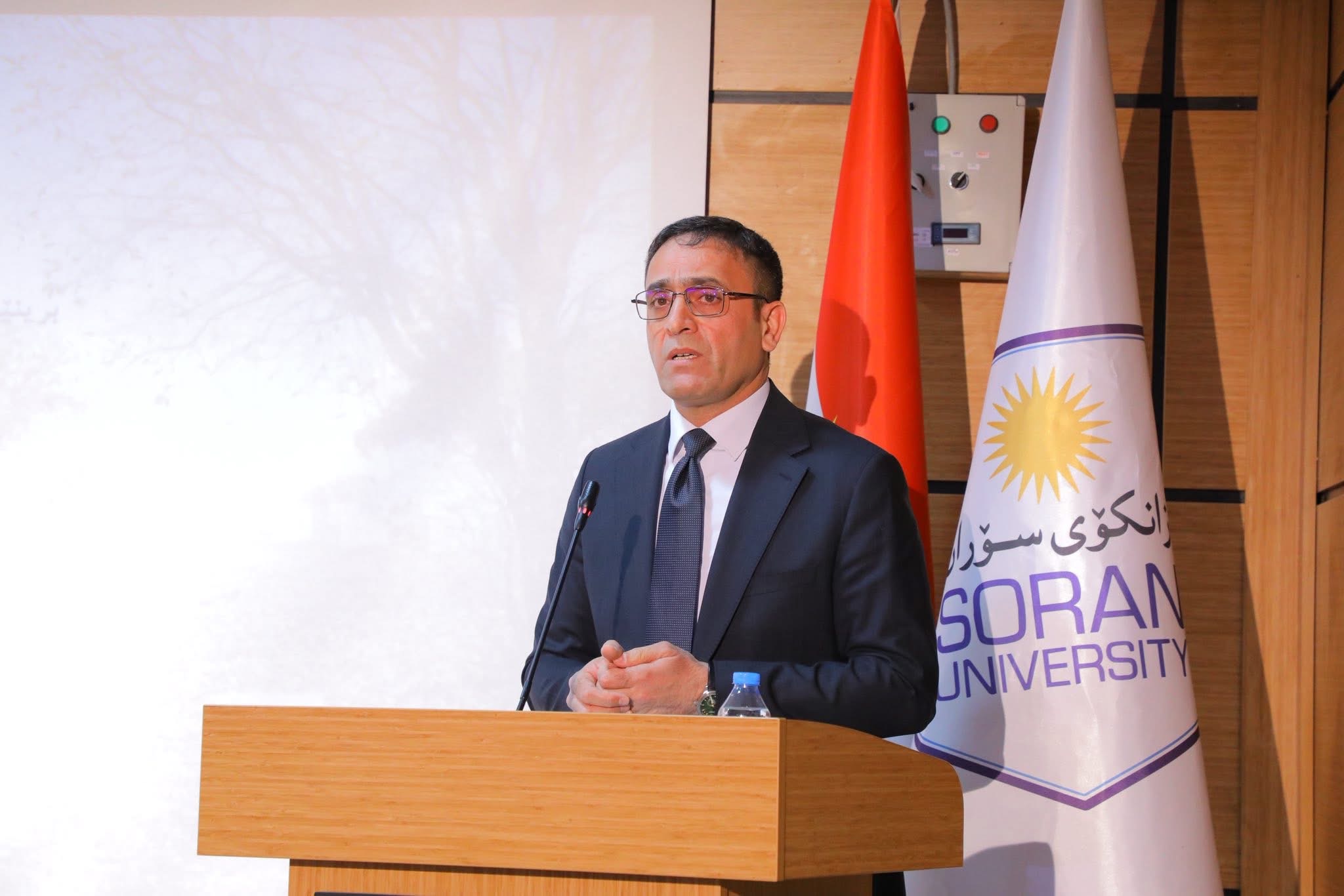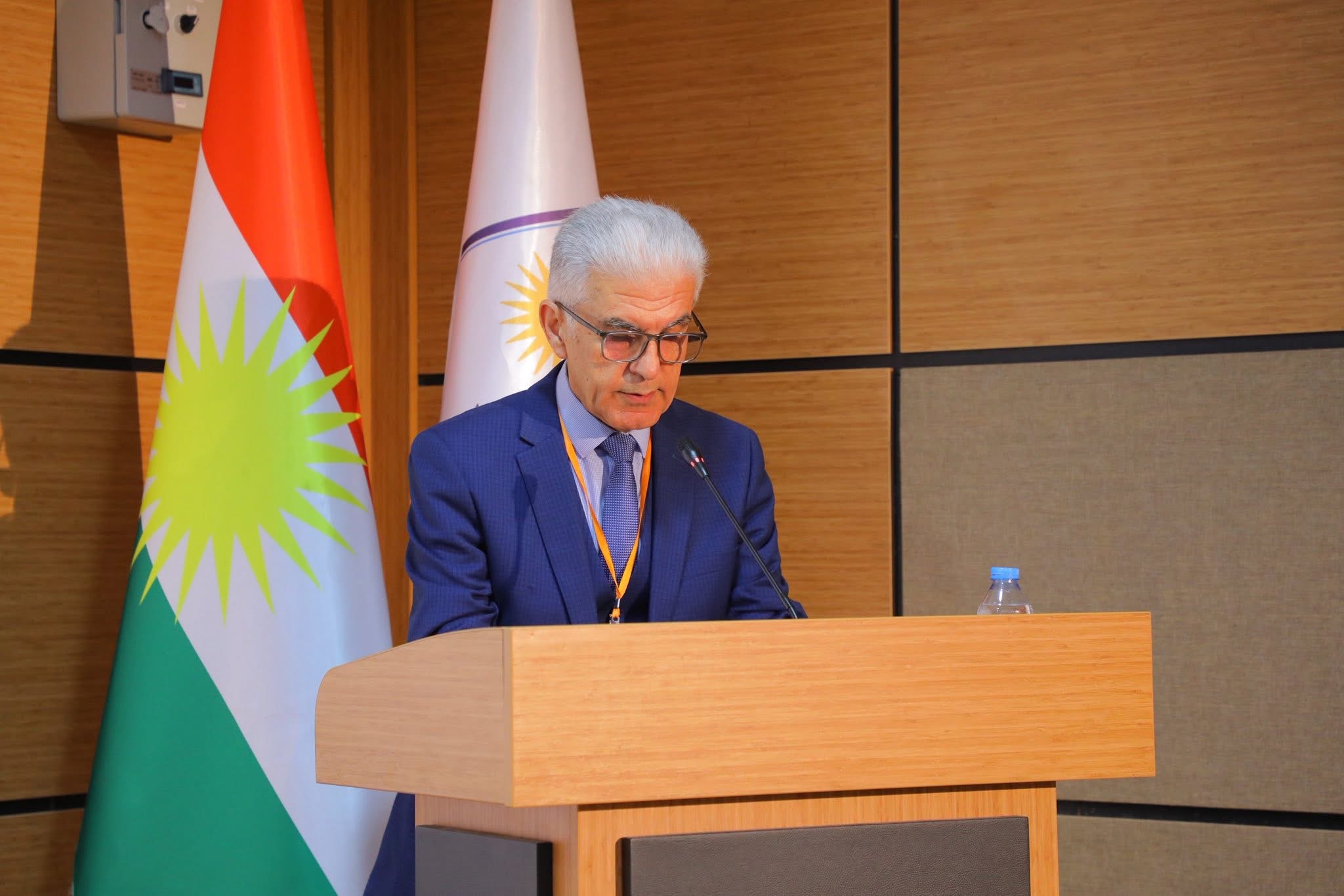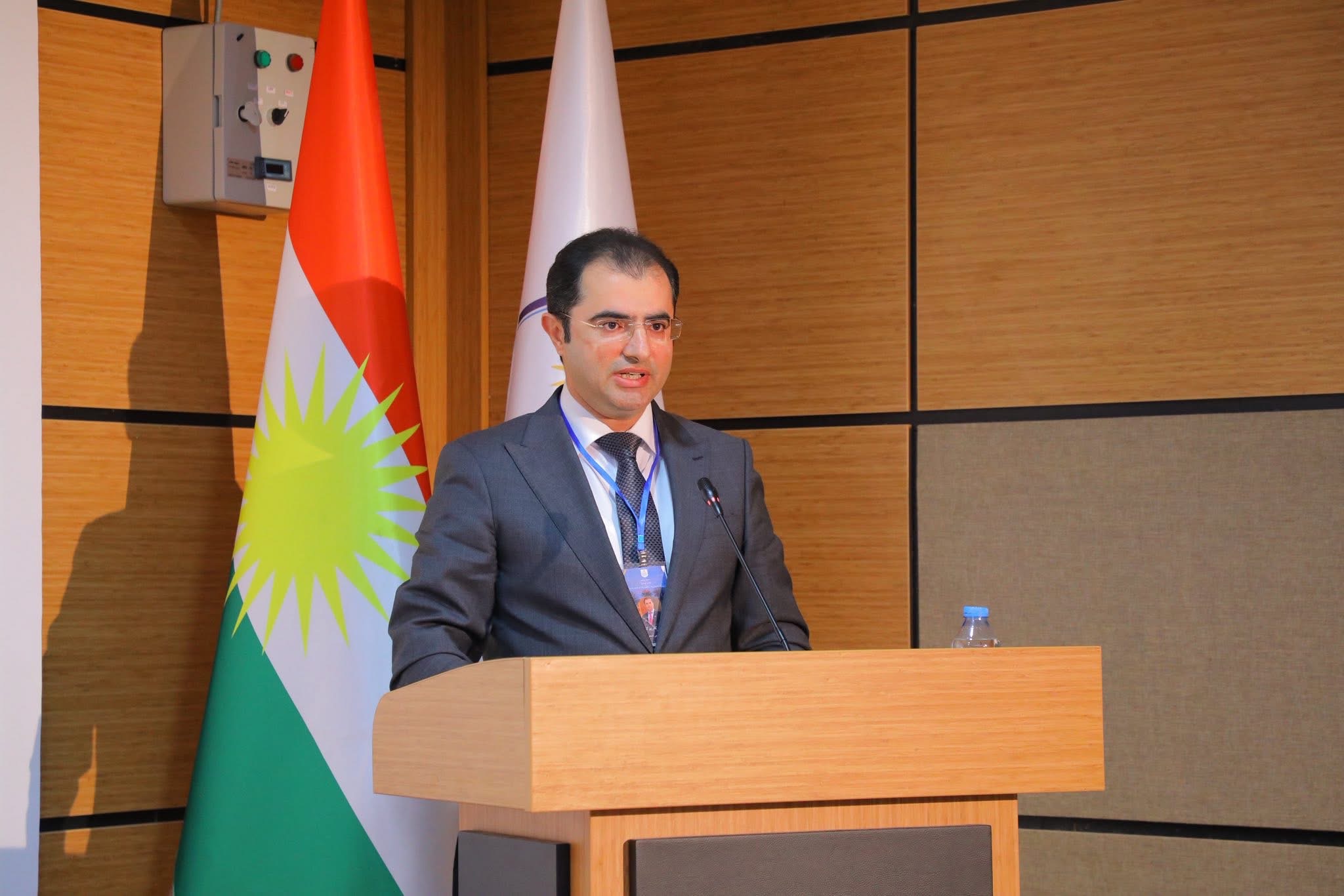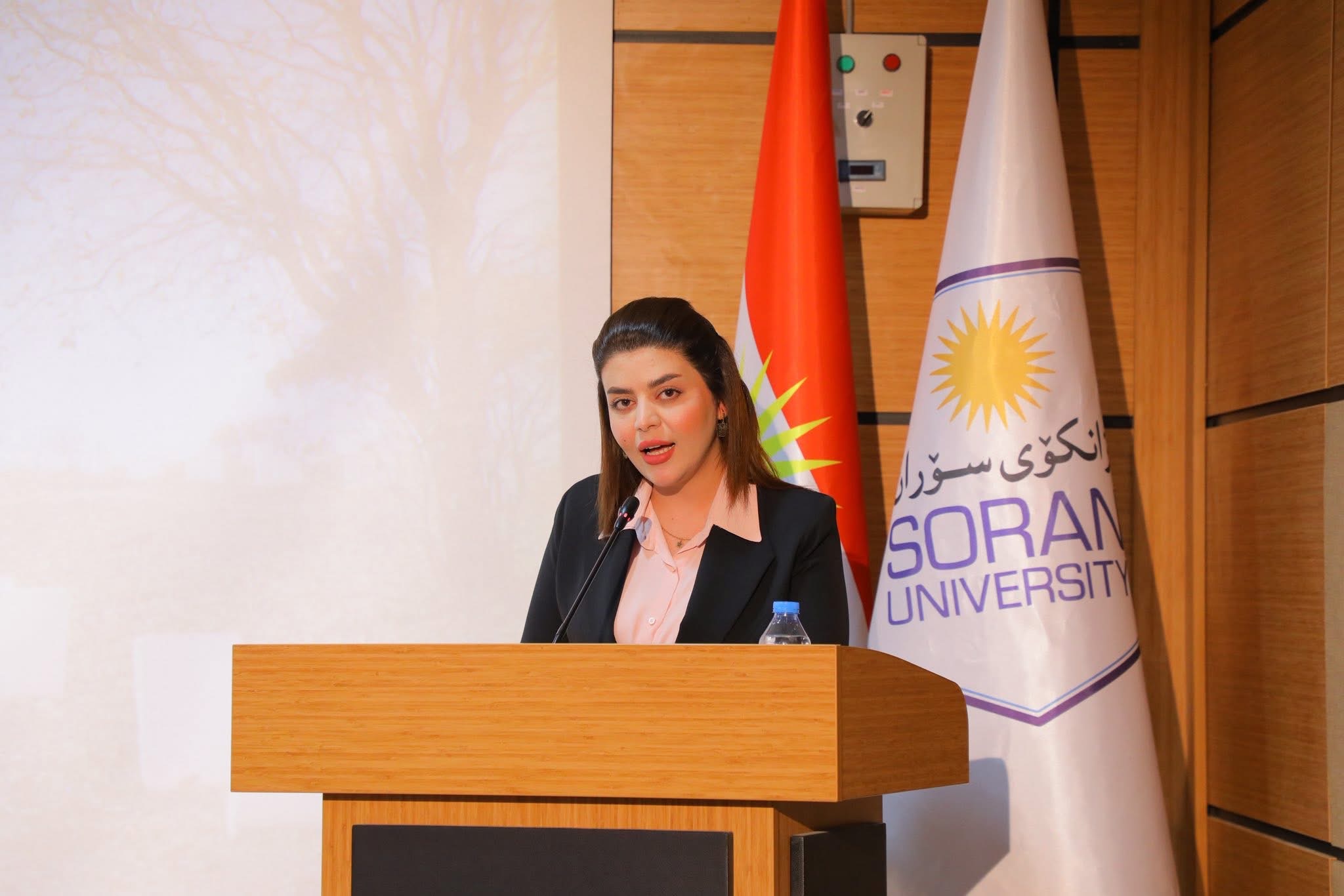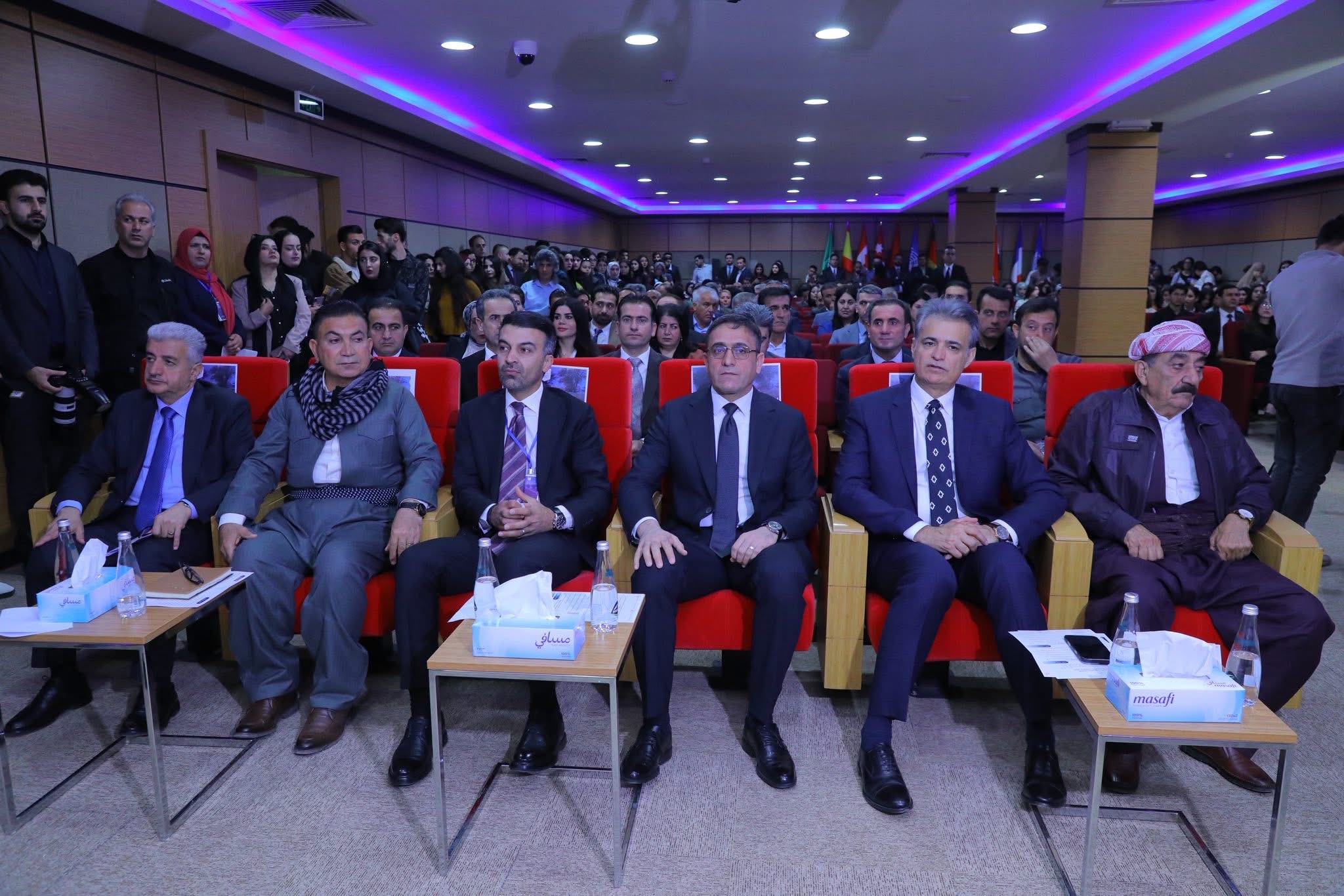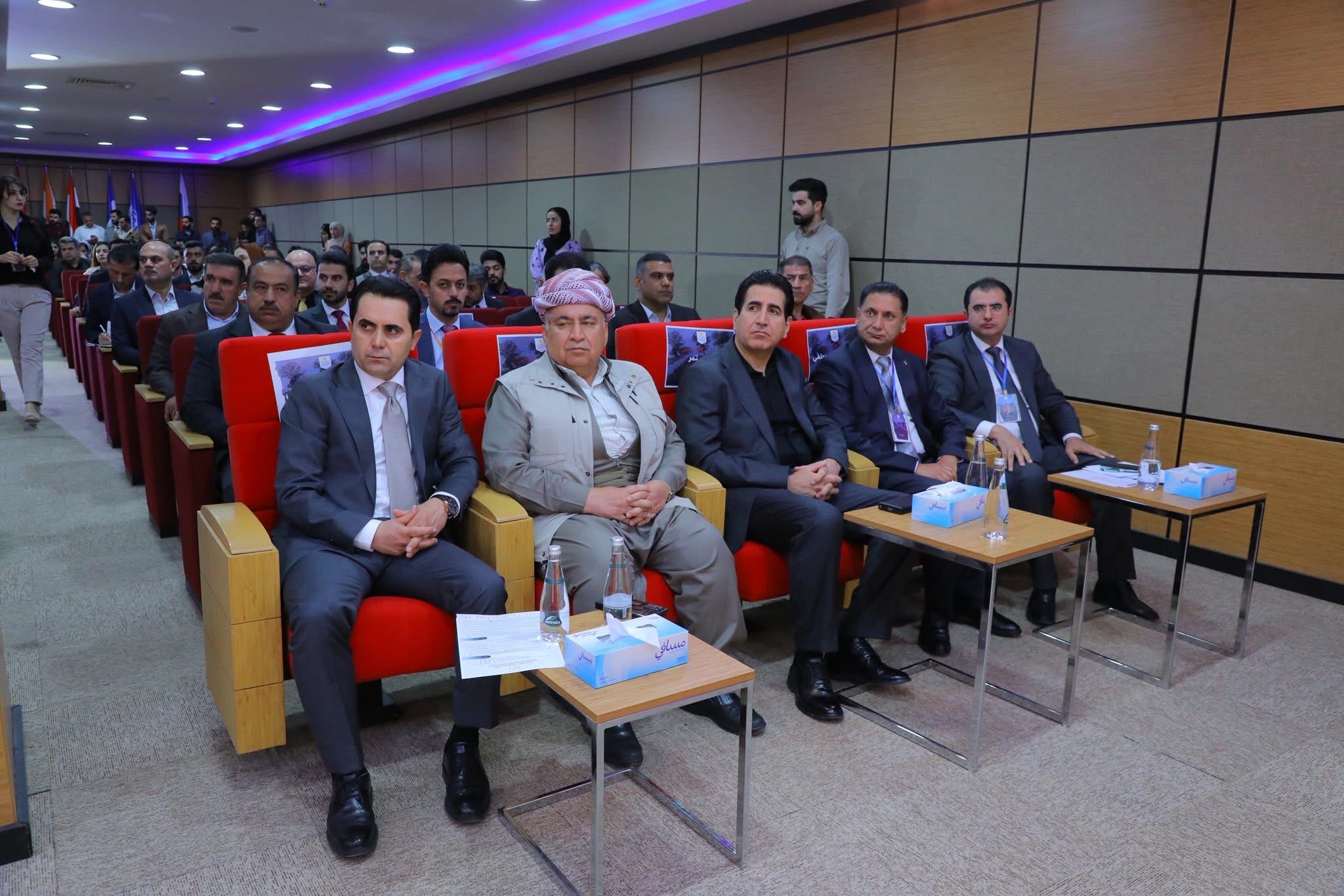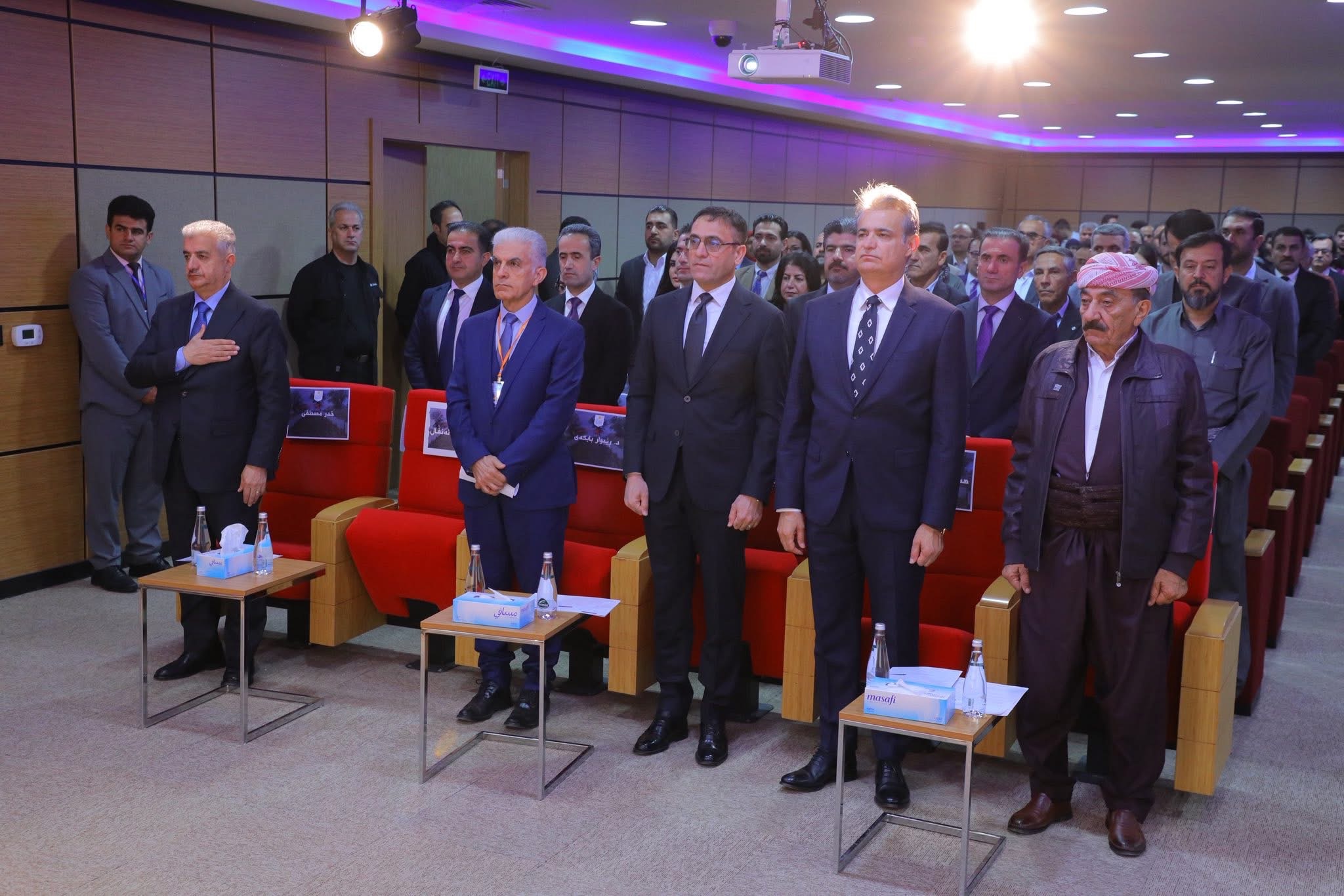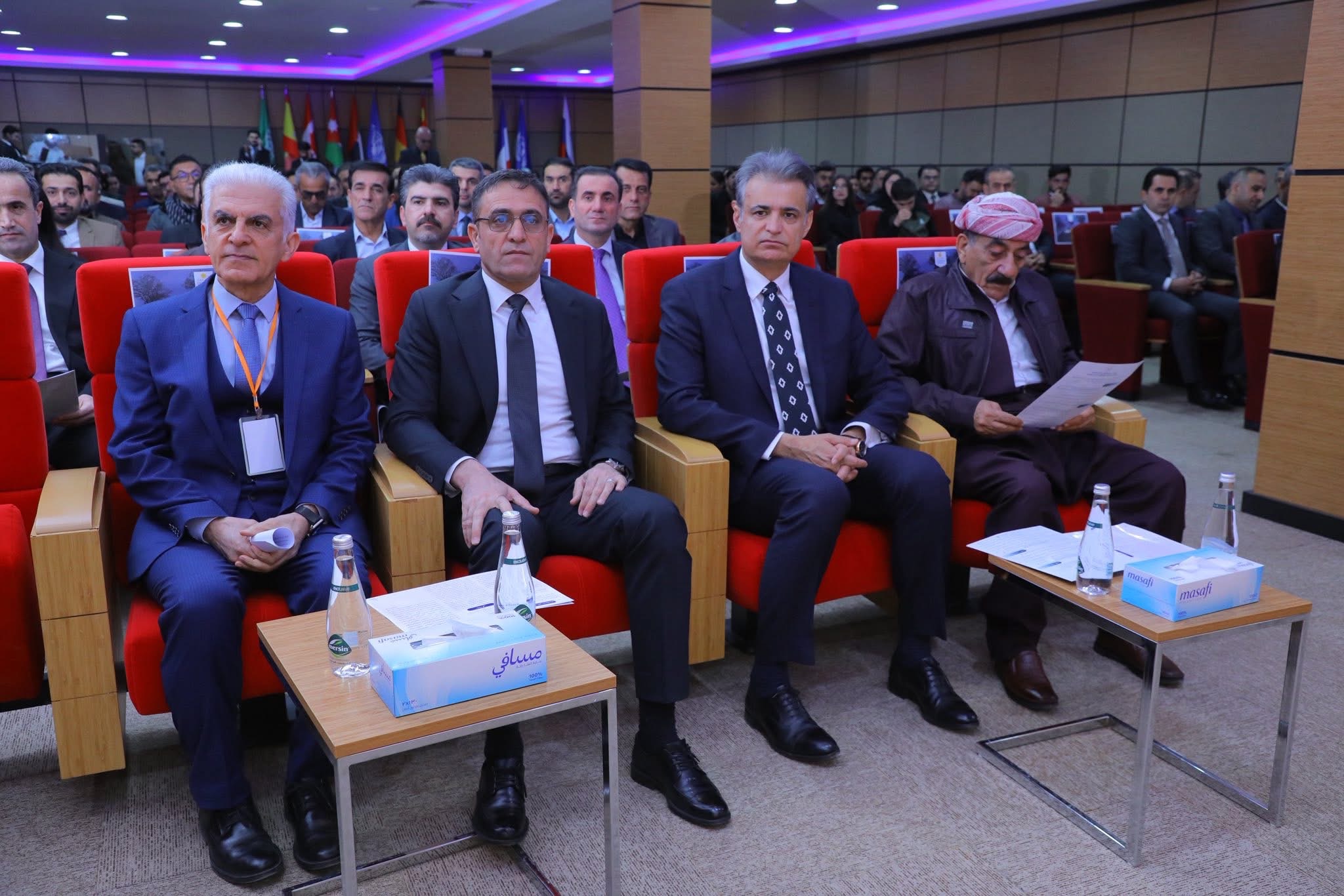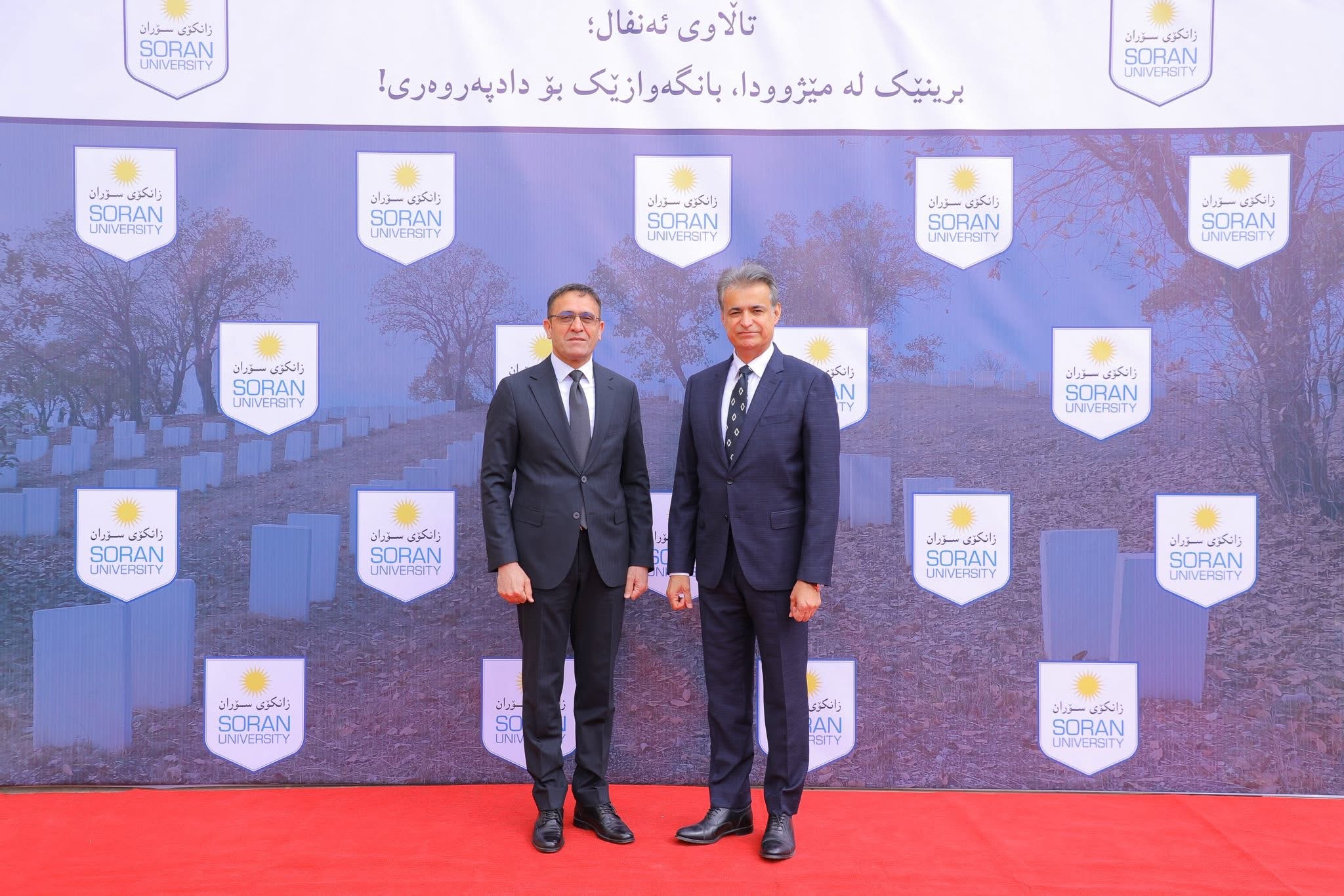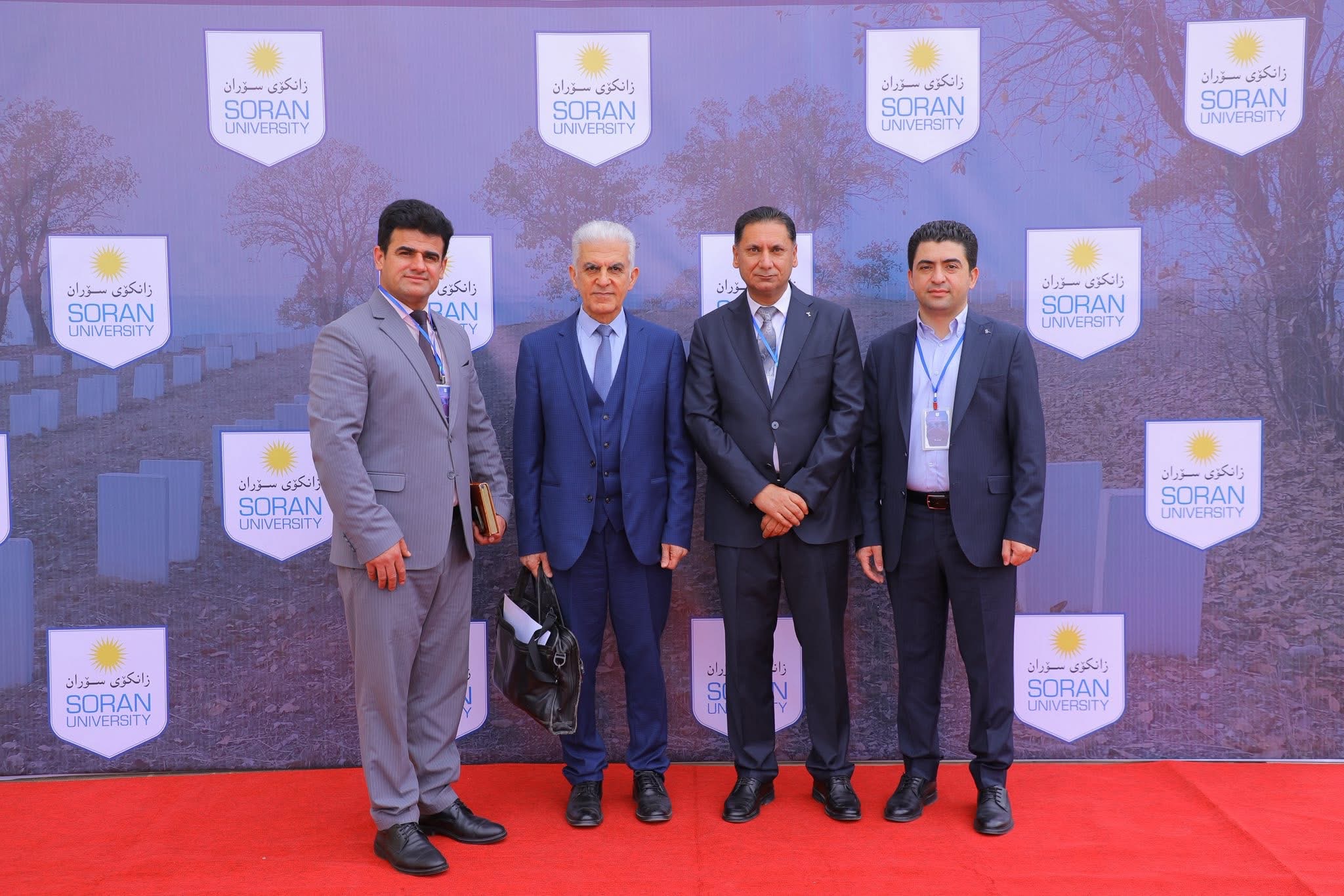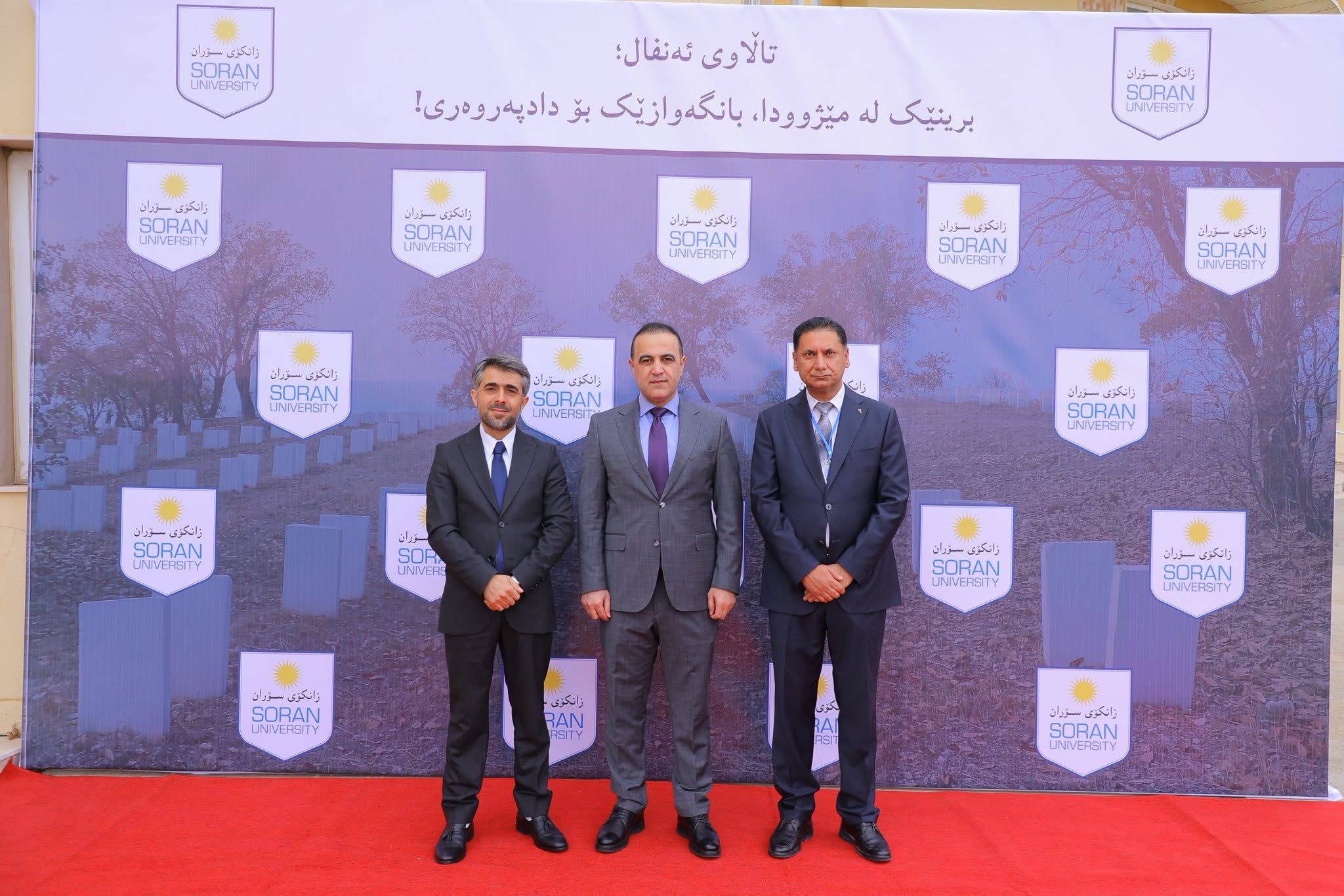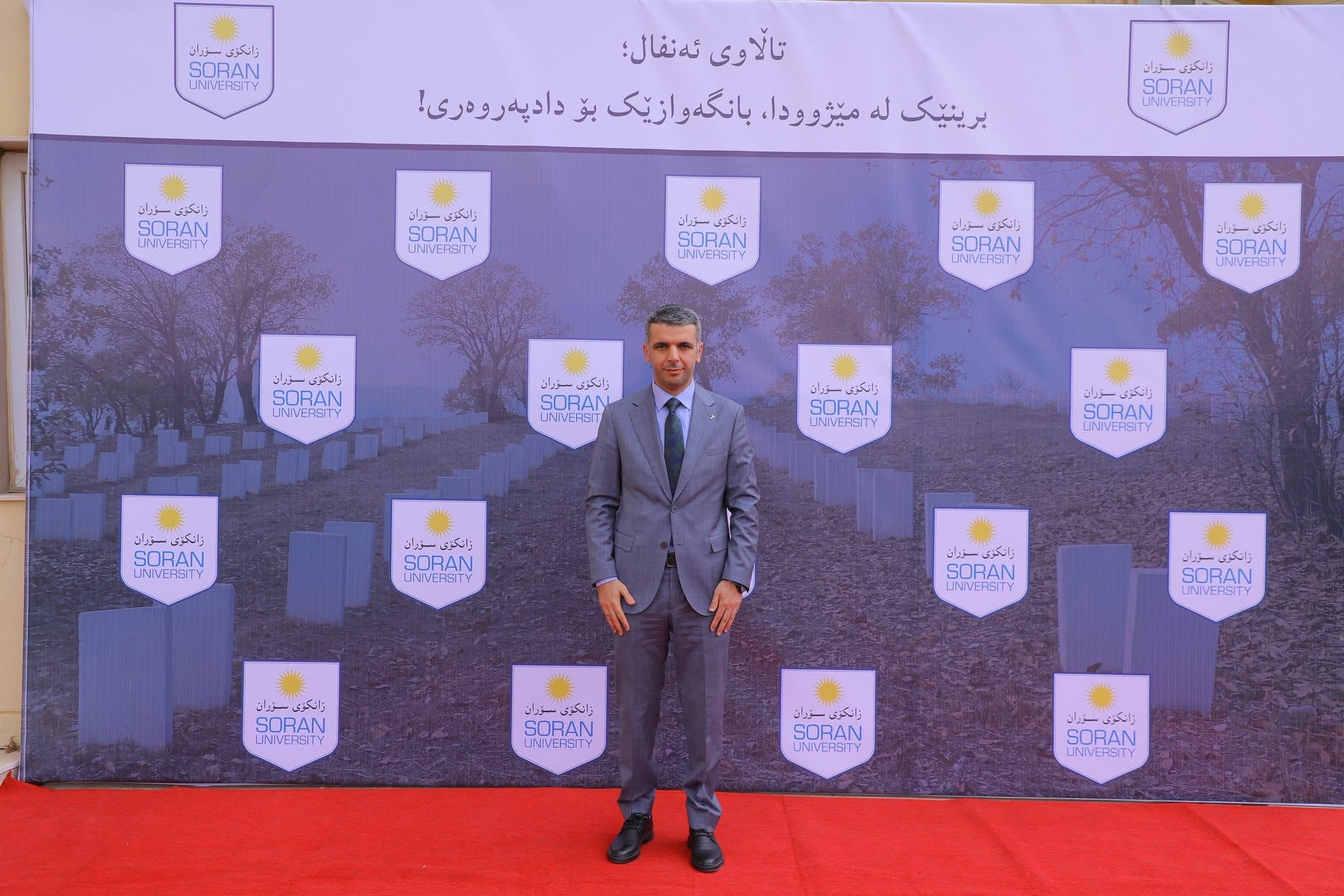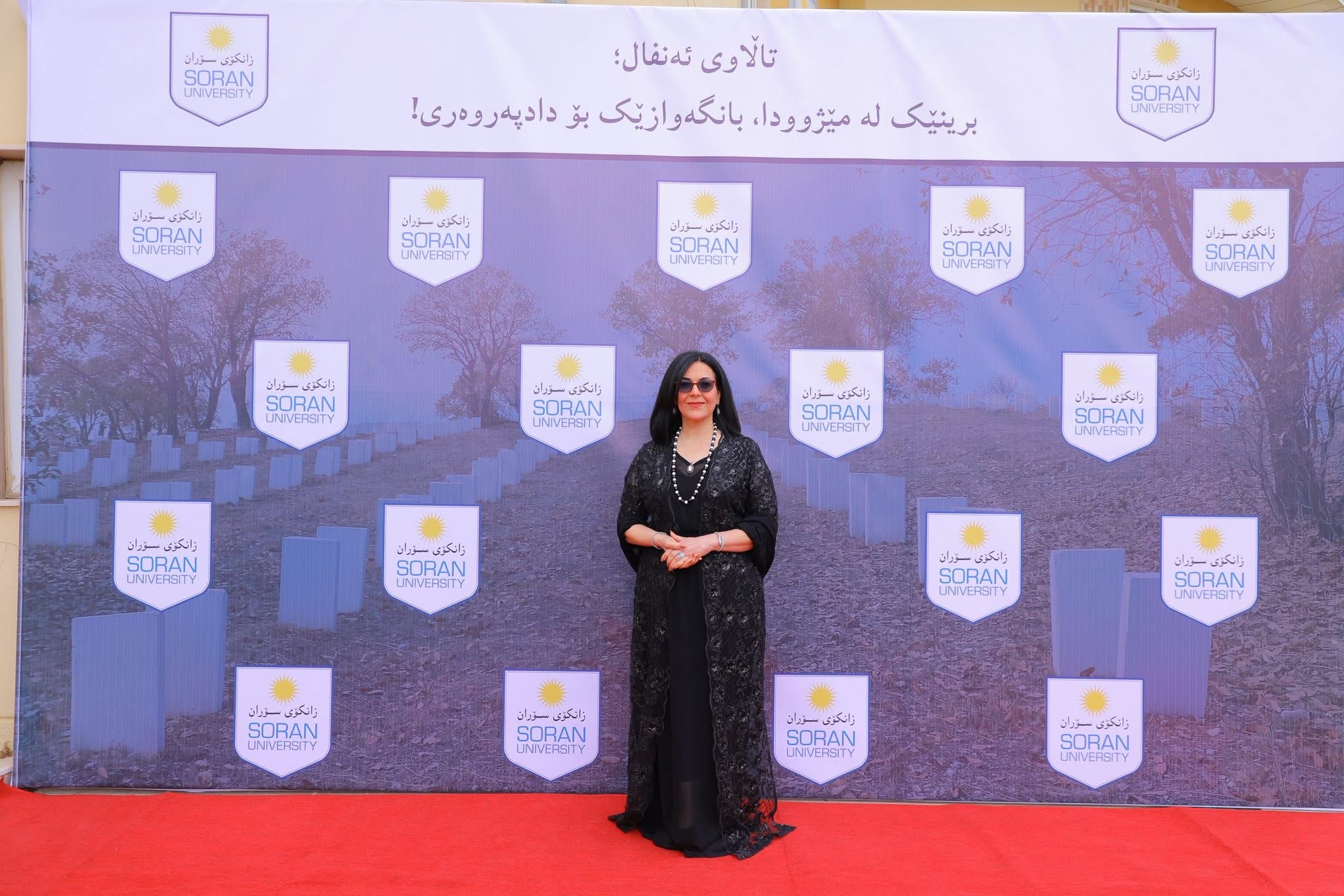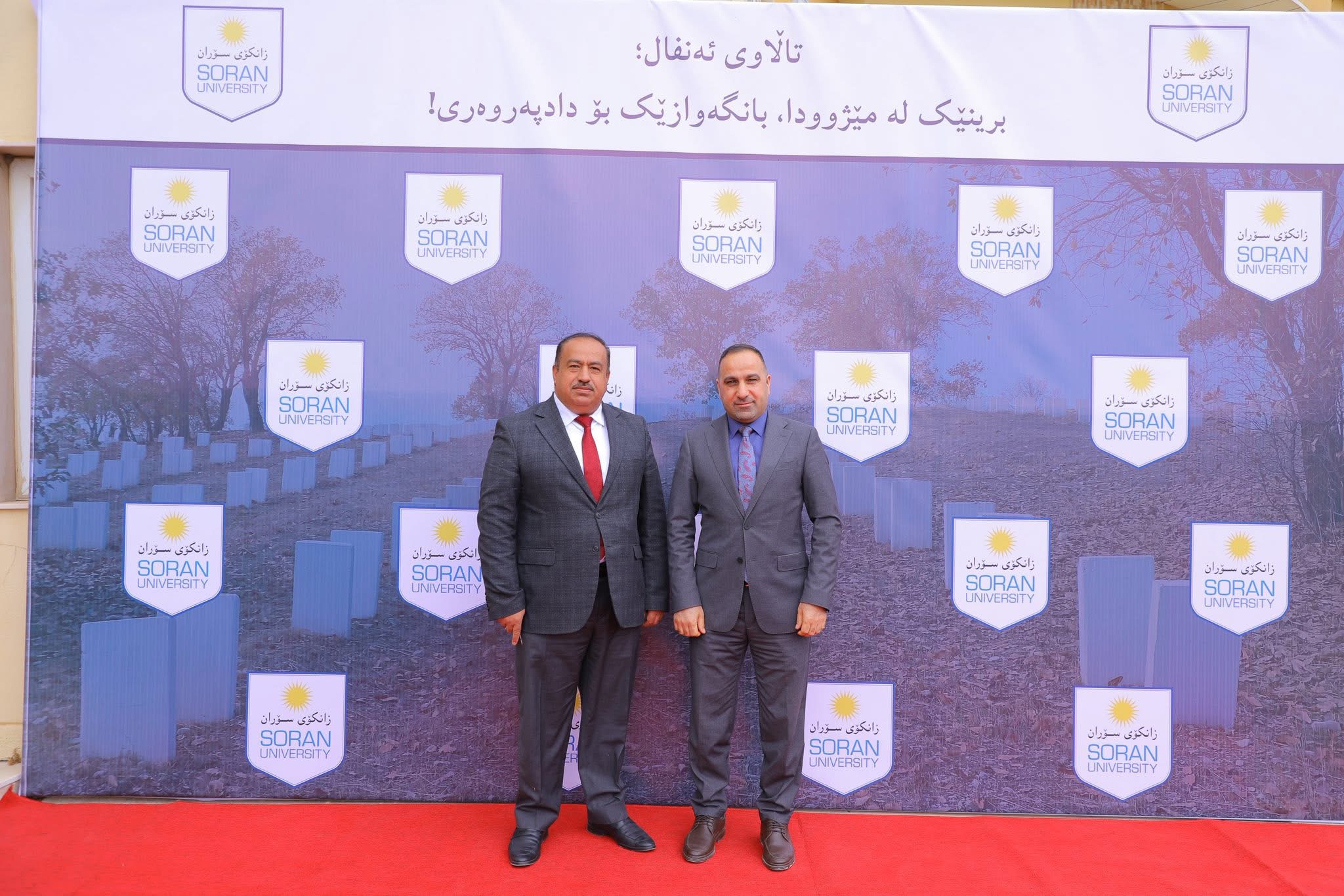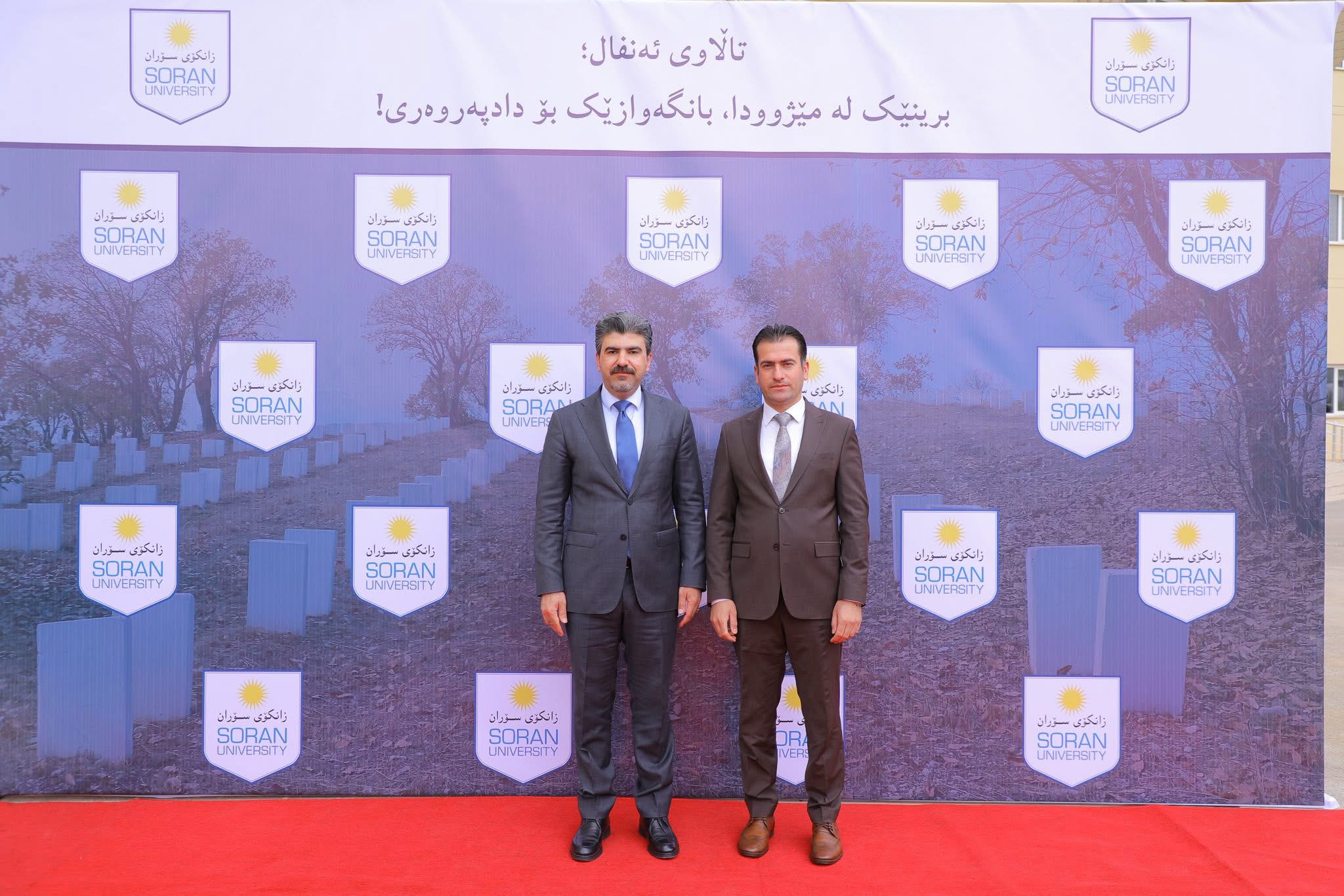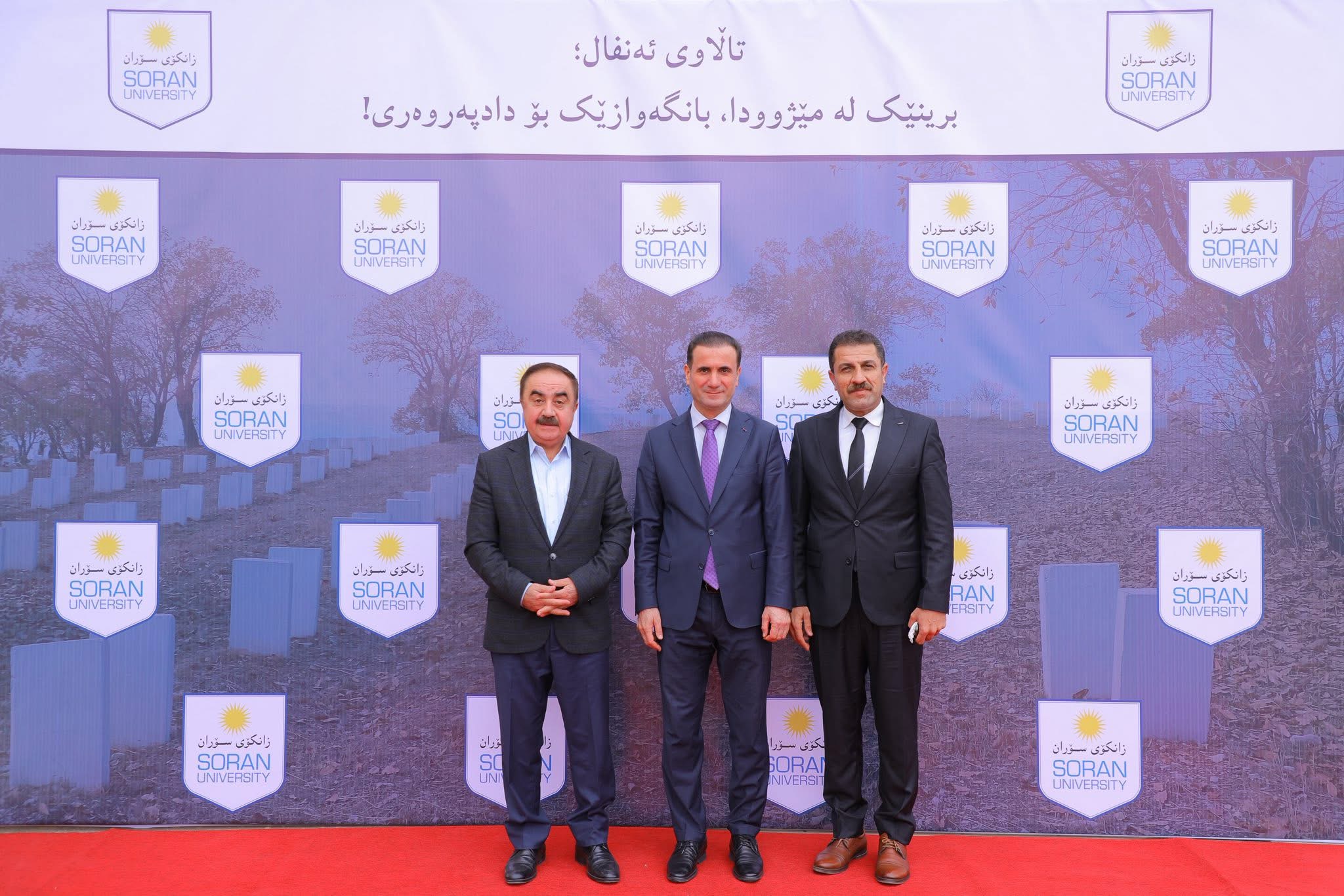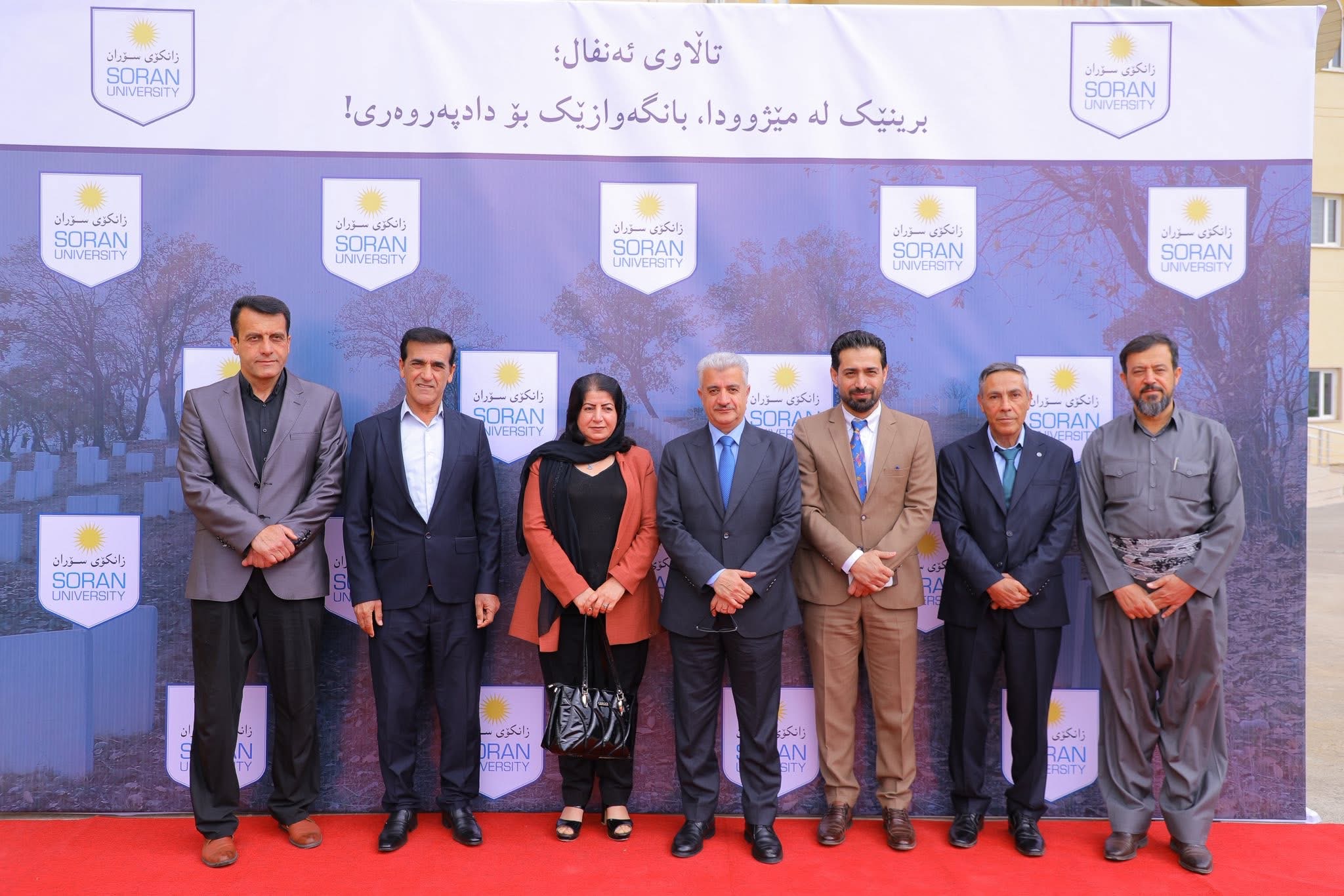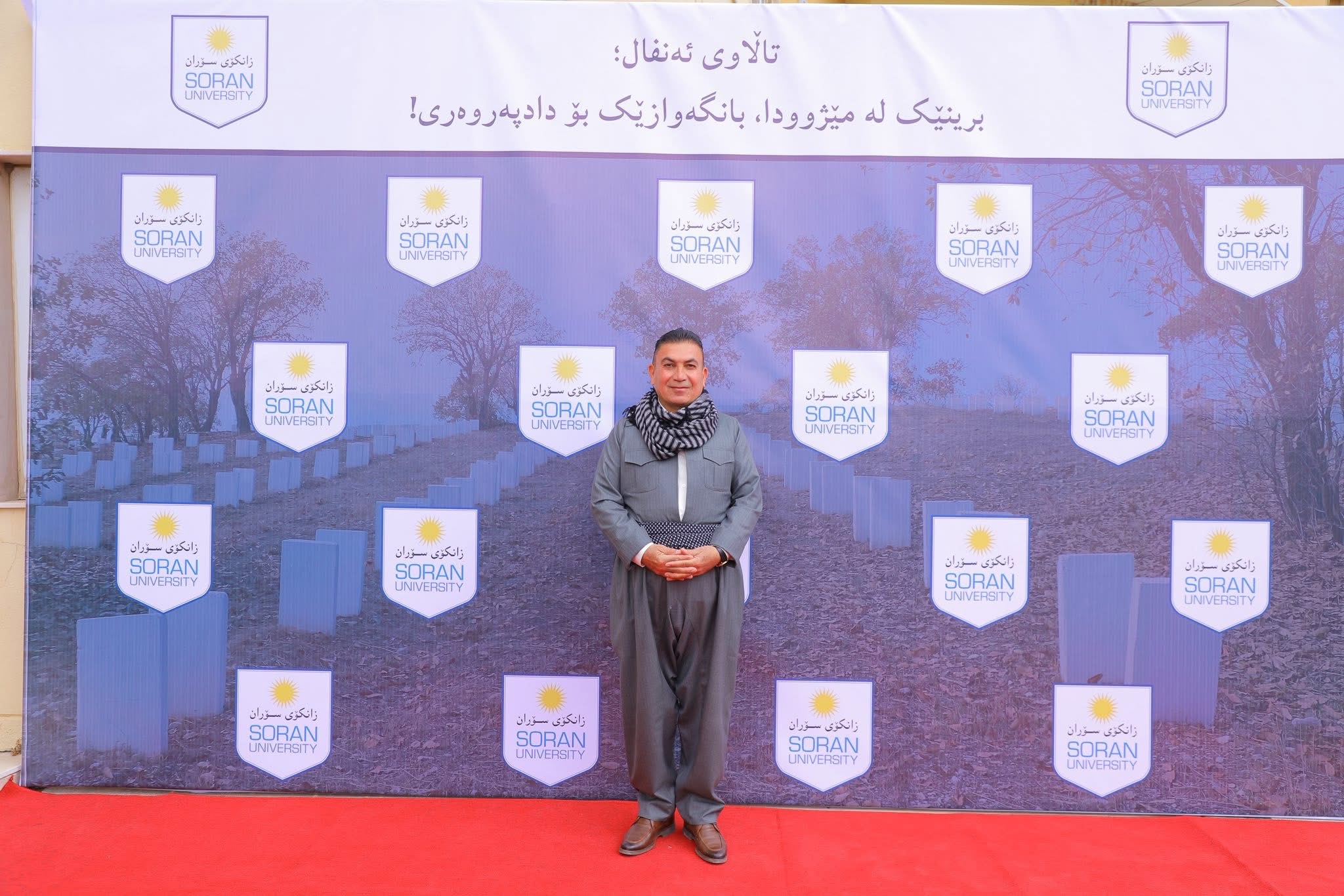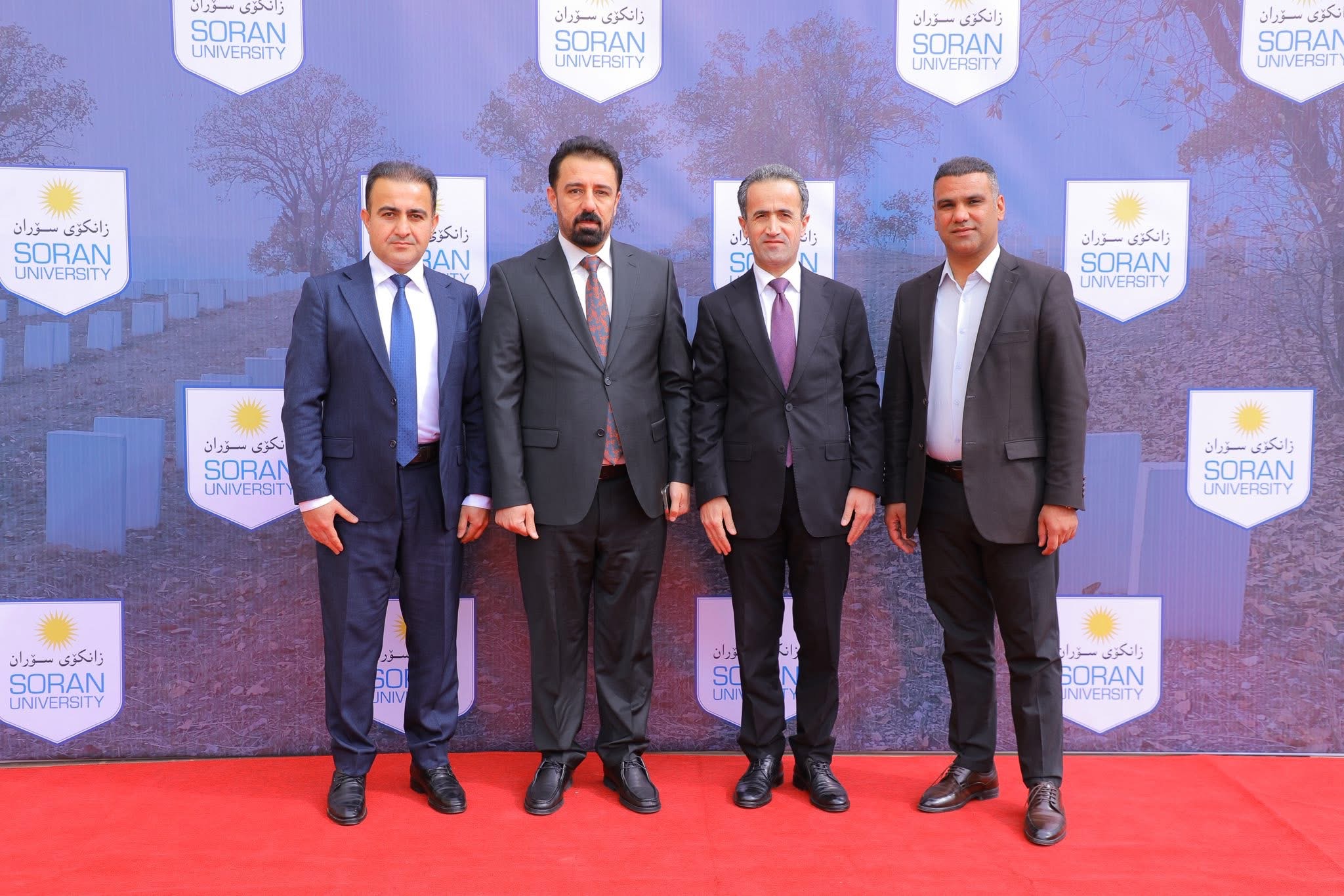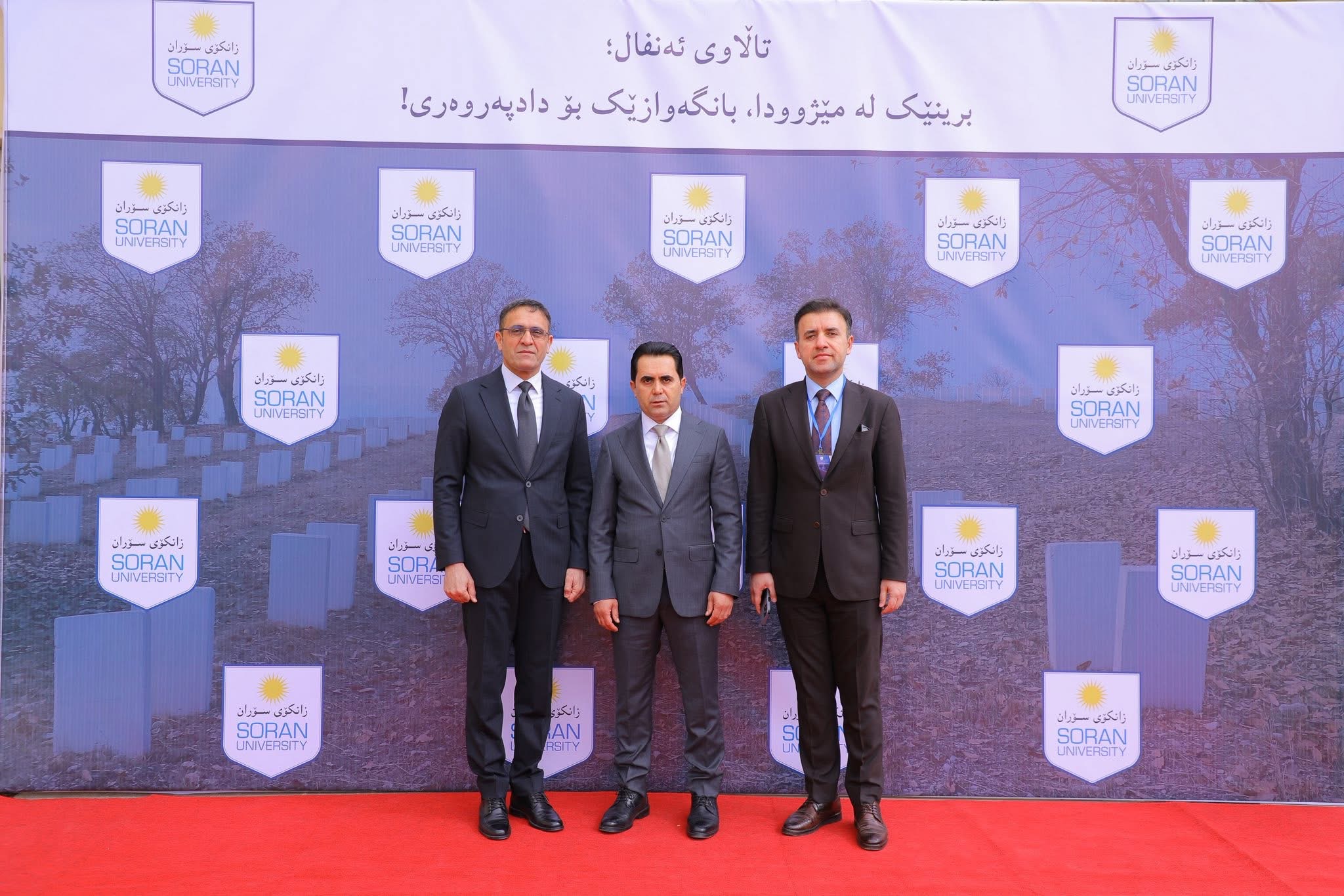On Monday, April 14, 2025, Soran University hosted a symposium titled “The Anfal Valley; A Wound in History, A Call for Justice!”, with the participation of Asist. Prof. Dr. Sherwan Sharif Qurtas, President of Soran University, members of the University Council, governmental and party officials, faculty members, staff, students, and families of Anfal victims.
The symposium was organized by the Center for Genocide, Gender, and Societal Research—a branch of the Scientific Research Center at Soran University. The primary aim of the event was to shed light on the historical, political, and legal dimensions of the Anfal Campaign, and to encourage academic inquiry into its long-term socio-cultural and psychological impacts. It also aimed to raise international awareness and mobilize support for the victims of this atrocity.
The event opened with a keynote address by Asist.Prof. Dr.Ibrahim Malazada, Director of the Center for Genocide, Gender, and Societal Research.
Following this,Asist. Prof. Dr.Sherwan Sharif Qurtas, President of Soran University, delivered a speech in which he remarked:
“Today, we come together at Soran University to commemorate the Anfal catastrophe. This moment brings both sorrow and pride—sorrow for the genocide committed against our people, and pride in seeing our faculty and students engage meaningfully in research and remembrance of the Anfal genocide. Through the efforts of the Scientific Research Center, we aim to provide data-driven insights to relevant stakeholders and stress the moral and academic responsibility of all institutions in serving the families of Anfal victims—whether materially, psychologically, or through scholarly investigation.”
Subsequently, a commemorative speech on behalf of the Martyrs and Anfal Victims of Soran was delivered by Karim Kawa.
This was followed by a theatrical performance titled “Return of the Lost Souls” by the Asman Theatre Group, depicting the trauma and devastation of the Anfal Campaign.
Panel Sessions:
Panel I: Social Sciences and the Human Dimension of Anfal
Moderator: Asist. Prof. Karmand Hamed
• Prof. Dr.Mohammed Ihsan – Character Relations in Genocide: The Kurdish Case
• Dr. Yaseen Mamand – The Social and Political Aftermath of Anfal: Displacement and State Policy
• Prof. Dr.Media Zangana – Gender and Oppression: The Impact of Anfal on Kurdish Women and Families
• Asist. Prof. Dr.Abdulrahman Karim – Political and Strategic Contexts of Iraq’s Execution of the Anfal Campaign
Panel II: Applied Sciences and the Legacy of Anfal
Moderator: Asist . Prof. Dr.Karwan Kakabra
• Prof. Dr.Yaseen Karim – Forensic Science and Mass Graves: The Role of Technology in Identifying Anfal Victims
• Mr. Karwan Mohammed Aziz – Environmental Consequences of Genocide: Displacement and Ecosystem Disruption
• Researcher Adalat Omar – Archival Memory: A National Archival Project for the Genocide of Kurdistan
• Ms. Darya Rostam Ahmad – The Kurdish Genocide and Its Psychological Repercussions
Panel III: Representing Anfal in Literature, Art, and Kurdish Cinema
Moderator: Mr. Gharib Ibrahim
• Homer Mohammed – Visual Memory in Commemoration: The Anfal Atrocity and the Titanic Disaster as Comparative Cases
• Researcher Samko Sabir – Framing the History of Anfal in Kurdish Media Discourse
• Researcher Hemn Abdullah Guptpayi – Unseen Images of Anfal: From Oblivion to the Screens of Cinema and International Forums
• Asist.Prof. Dr.Ibrahim Malazada – Audience Engagement in Genocide Narratives: Reception and Interpretation
As part of the symposium, Pashko Mohammed, a survivor of the Anfal Campaign, shared his personal testimony. The attendees also listened to a moving musical piece titled “182 Thousand Heartbeats of Sorrow”, dedicated to the victims of Anfal.
To conclude the event, a number of commemorative trees were planted on the campus of Soran University by participants, symbolizing life and remembrance.
Finally, Asist. Prof. Dr.Sherwan Sharif Qurtas, President of Soran University, presented certificates of participation to the panel chairs and panelists in recognition of their academic contributions.
Symposium of "The Anfal Valley; A Wound in History, A Call for Justice!” Held at Faculty of Scientific Research Center /Soran University
Published on: 2025-04-15 17:02:07
